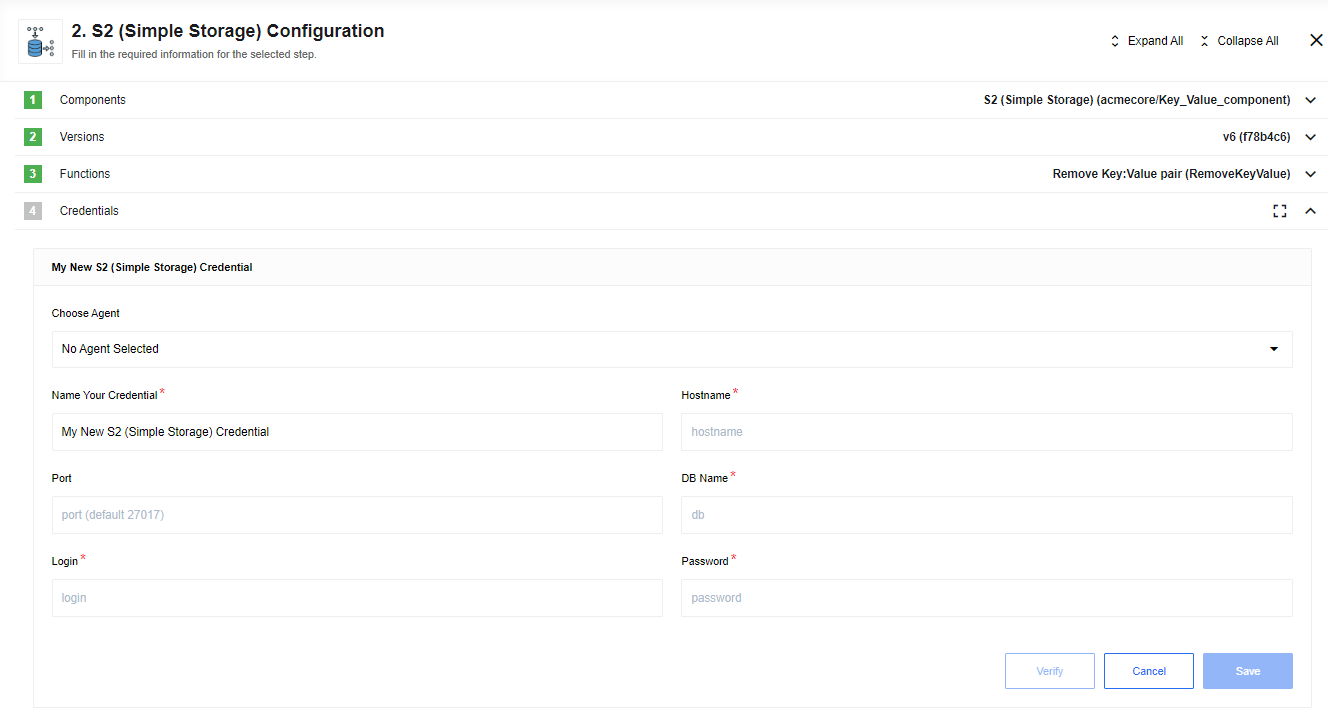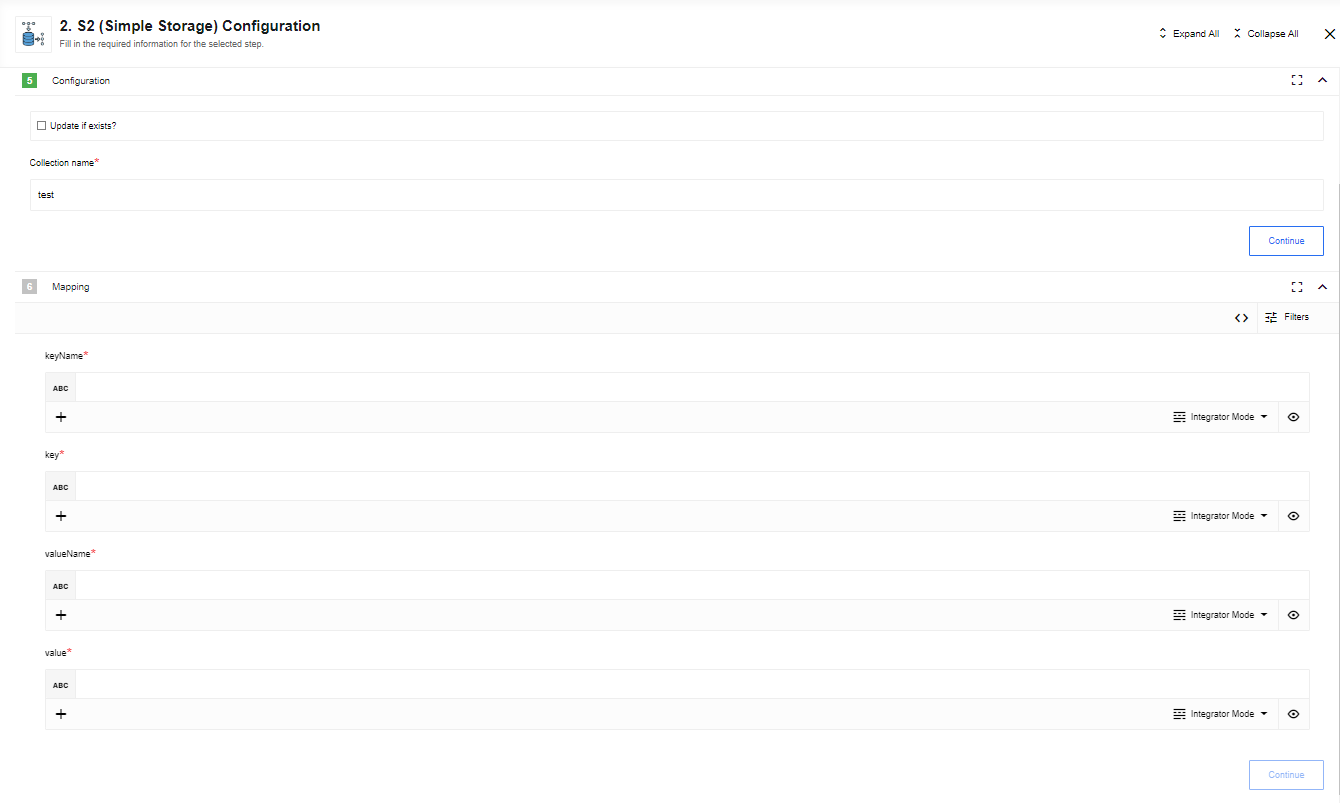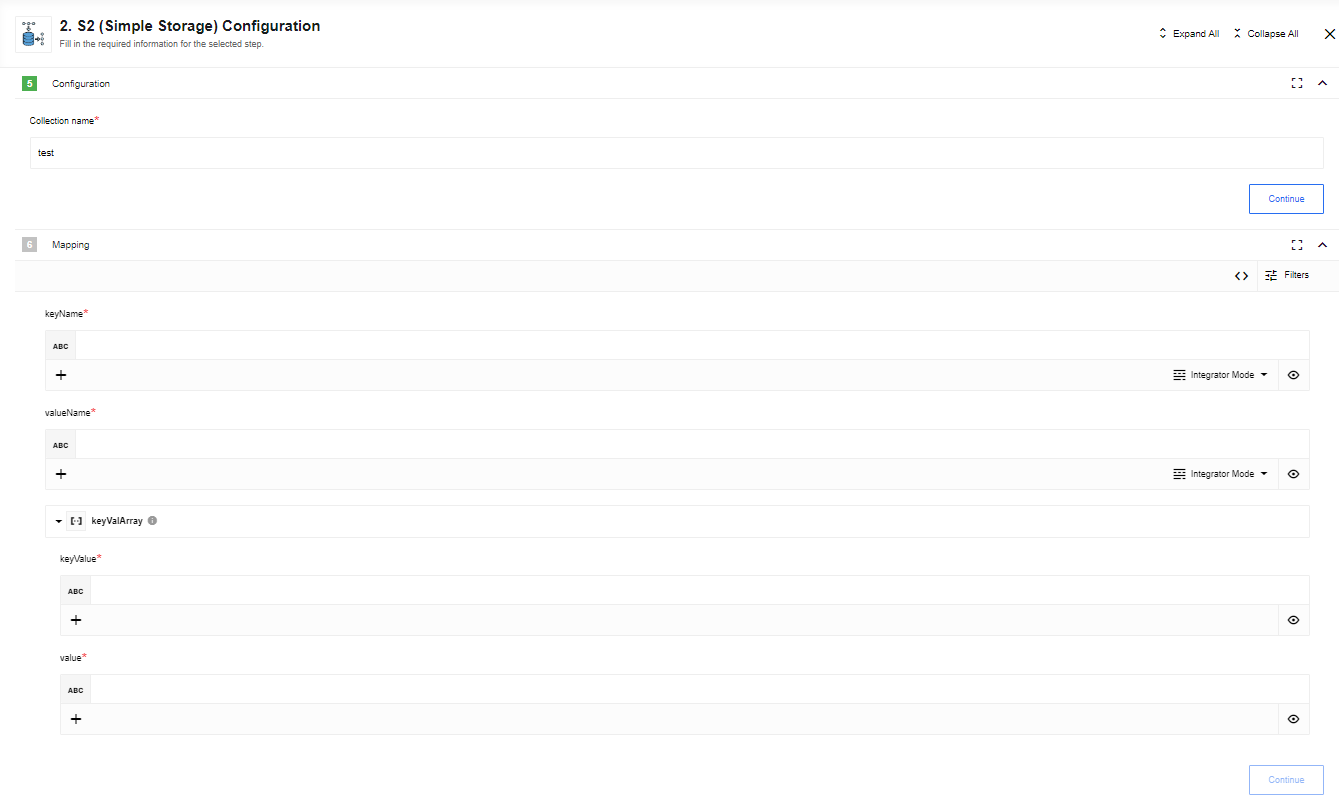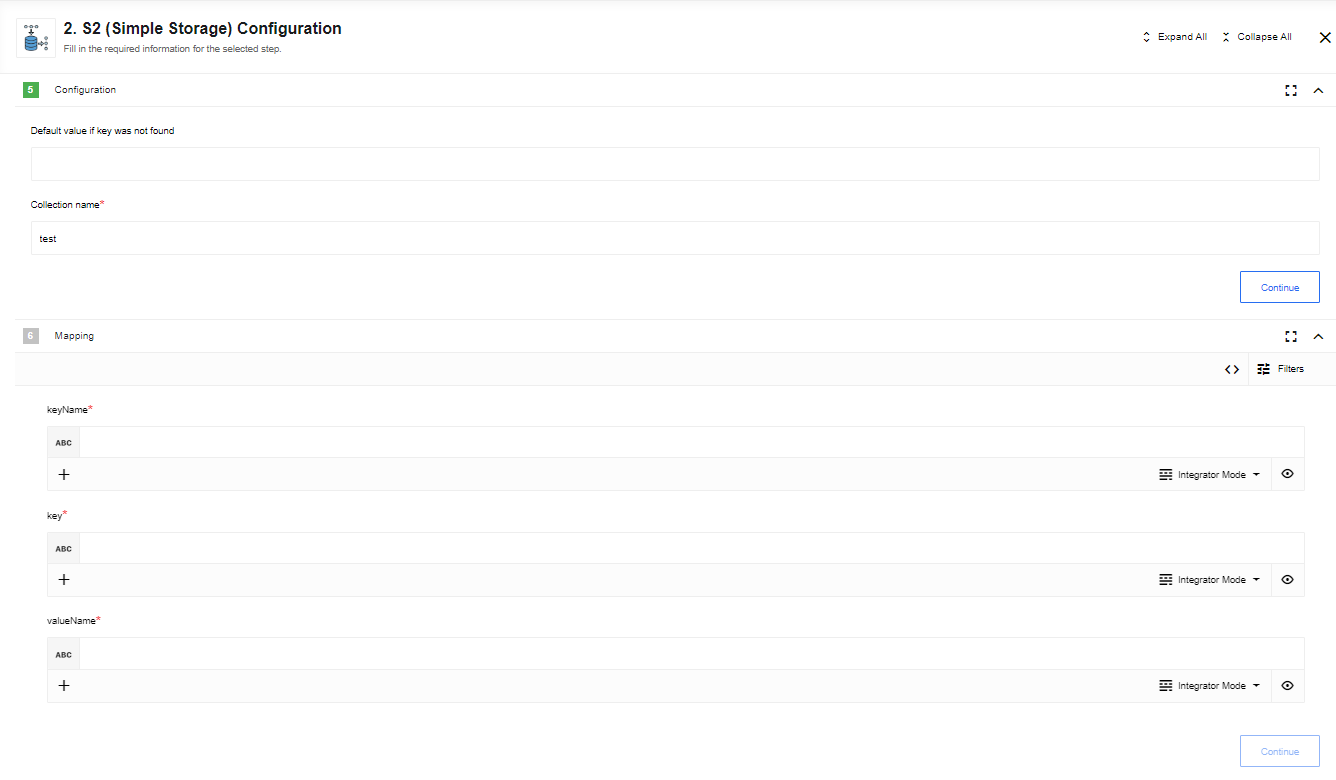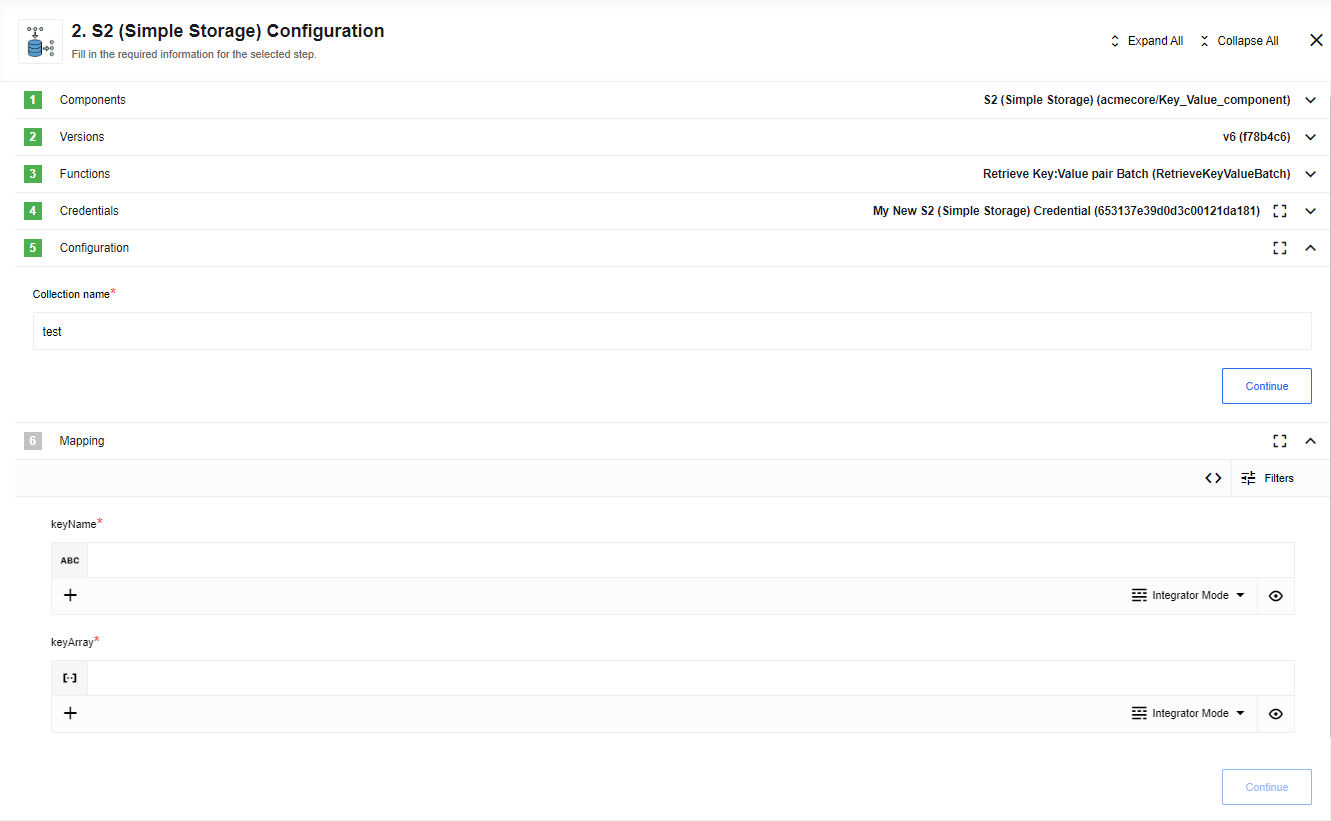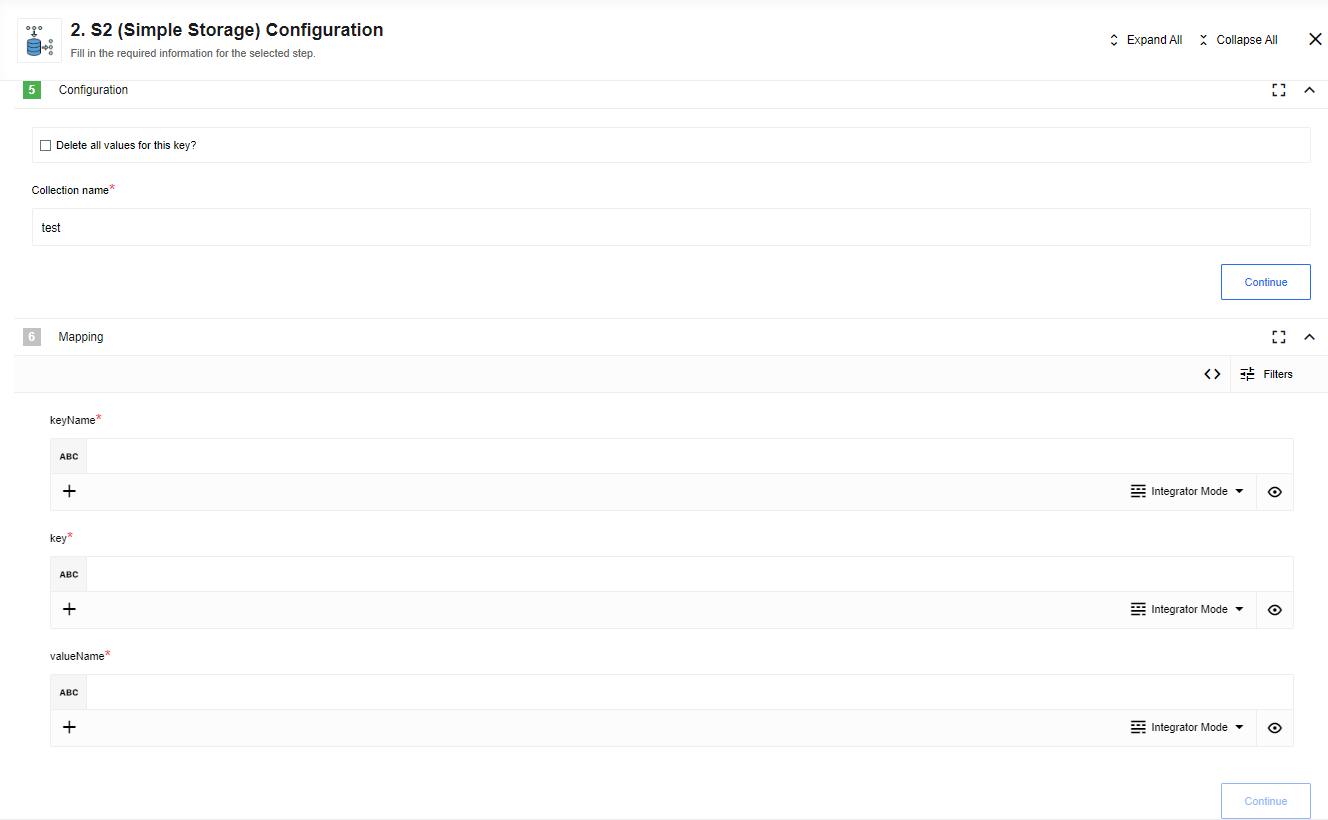Simple Storage component
How works
Under the hood used MongoDB. During Action configuration collection need to be specified.
Purpose
Main goal of this component is to provide simple possibility to store and retrieve Key:Value pairs.
Requirements
Instance of MongoDB with possibility to connect from component.
Environment variables
Please Note: From the platform version 20.51 we deprecated the component
LOG_LEVELenvironment variable. Now you can control logging level per each step of the flow.
Technical Notes
The technical notes page gives some technical details about Simple Storage component like changelog and completeness matrix.
Credentials
-
hostname - Hostname or IP address of MongoDB server.
-
port - Port which is used by your MongoDB server to accept connection. (Default is 27017)
-
db - Database name that is used to store collections with Key:Values
-
user - MongoDB username with access to read and write from/to corresponding DB and collection.
-
pass - Password for specified user.
Triggers
This component has no trigger functions. This means it will not be accessible to select as a first component during the integration flow design.
Actions
Store Key
Insert new or update existing Key:Value pair
Input fields:
keyName - Name of a field where key will be stored
key - Value of a key that uniquely identifies Key:Value pair
valueName - Name of a field where value will be stored
value - Value that will be stored and can be accessed with provided keyName and key
If checkbox “Update if exists?” checked then value would be updated if already exists.
Resulting document stored in MongoDb will have following structure:
{
keyName: key,
valueName: value
}
If another valueName will be stored with the same keyName:key it will be added to existing document and result will be:
{
keyName: key,
valueName: value,
valueName1: value1
}
Result will be:
- If there where no such keyName:key yet:
{
"response": "inserted"
}
- If keyName:key already exists but doesn’t have valueName provided:
{
"response": "updated"
}
- If such keyName:key and valueName combination already exists and checkbox “Update if exists?” checked:
{
"response": "updated"
}
- If such keyName:key and valueName combination already exists and checkbox “Update if exists?” not checked:
{
"response": "skipped"
}
Store Key Batch
Insert new or replace existing Key:Value pair from Batch.
Input fields:
keyName - Name of a field where key will be stored
valueName - Name of a field where value will be stored
keyValArray - Array with values
Each value in array is object which have following fields:
keyValue - Value of a key that uniquely identifies Key:Value pair
value - Value that will be stored and can be accessed with provided keyName
Request example:
{
keyName: "someKeyName",
valueName: "someValueName",
keyValArray: [
{
keyValue : "someKeyValue1",
value: "someValue1"
},
{
keyValue : "someKeyValue2",
value: "someValue2"
}
]
}
All provided Key:Vale pairs will be inserted, if key already exist it will be replaced.
Response:
{
"response": "done"
}
Retrieve Key
Returns value by provided key and Value name if found or provided default value.
Input fields:
keyName - Name of a field where key is stored
key - Value of a key that uniquely identifies Key:Value pair
In response document from MongoDB collection will be provided, e.g.:
{
keyName: keyValue,
valueName: value,
valueName1: value1
}
Retrieve Key Batch
Returns array of values by provided key array.
Input fields:
keyName - Name of a field where key stored
keyArray - Array of keyValues
Response format is following:
{
"response": [
{
keyName1: key1,
valueName1: value1
},
{
keyName2: key2,
valueName2: value2
}
]
}
Remove Key
Removes Value provided in valueName or all values for specified key if “Delete all values for this key?” checkbox checked.
Input fields:
keyName - Name of a field where key stored
key - Value of a key that uniquely identifies Key:Value pair
valueName - Name of a field that should be deleted
Response format is following:
{
"result": "done"
}
Click here to learn more about the elastic.io iPaaS
